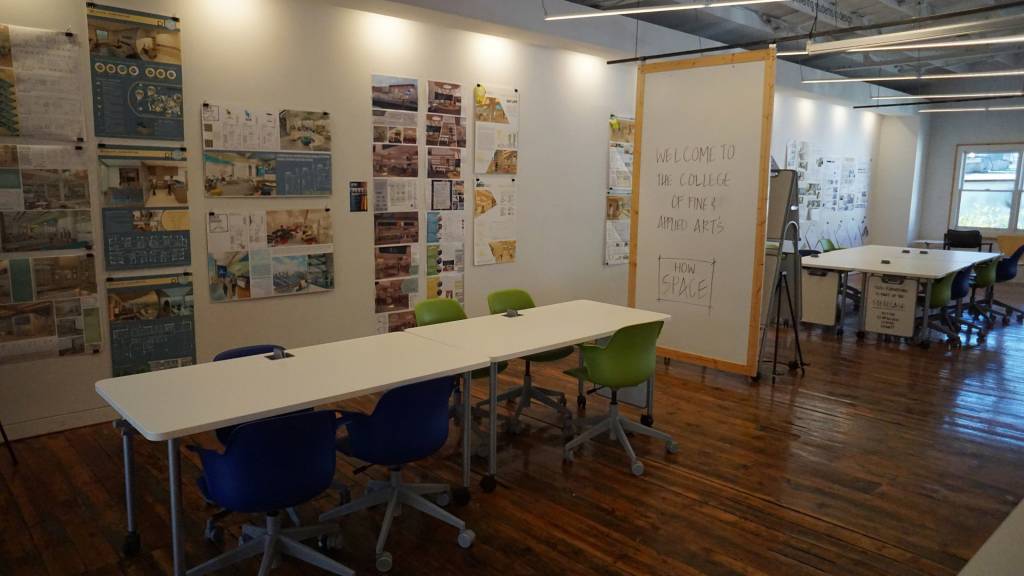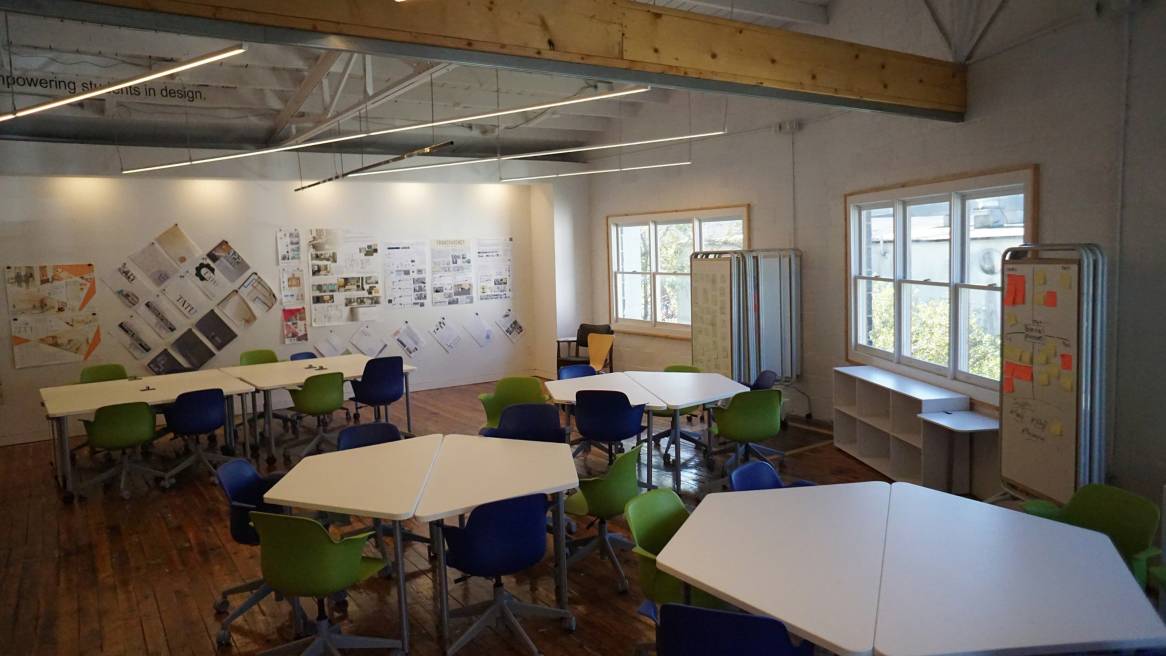Teaching Design Thinking to Solve Real World Problems
A course called AppLab puts students into multidisciplinary teams to work on real issues facing local nonprofits and organizations.
Forget traditional lecture halls and classes filled with students from the same program. Appalachian State University is doing something different. The university offers a course called AppLab where students from different programs across campus are put into multidisciplinary teams and challenged to work on real world problems. This class uses research, ideation and design thinking to solve issues for local nonprofits and organizations.
Mark Lewis, professor in Business Management, and Richard Elaver, professor in Applied Industrial Design, are two members of the multidisciplinary faculty team who teach the AppLab course. In 2017, they applied for the Steelcase Active Learning Center Grant knowing it could support AppLab by creating an environment that more accurately fits the curriculum. Upon receiving the grant, they talked to 360 about how they are empowering students with their design thinking curriculum.
360: What are your intentions with AppLab — teaching in a new way that deviates from traditional lectures?
“In a world of standardized testing, we’re challenging students to re-learn how to be creative.”
Richard Elaver
Richard: In a world of standardized testing, we’re challenging students to re-learn how to be creative. We want students to approach problems from a learned multi-dimensional process so these flexible thinkers will respond to the ambiguity of the future in a creative way.
Mark: Most education is focused on the notion of what was, the historical perspective, and what is, concepts and definitions. But we think education needs to help students conquer what could be. There’s a huge opportunity to create a campus experience focused on envisioning the future so students go into their areas of work and facilitate change.
360: What types of problems are AppLab students assigned to work on and what are some solutions they have come up with in the past?
Mark: We stick to three verticals; education, recreation, and healthcare. In our first generations of AppLab, students worked on projects like making App State more sustainable and walkable. Another team was assigned to utilize existing space in a better way and turned an abandoned car dealership into a music venue. And, another team came up with a technology to help local farmers bring their products to market quicker, easier and cheaper.
ACTIVE LEARNING CENTER GRANT
Browse resources, sign up for updates and learn more about Steelcase Education’s Active Learning Center Grant.
360: How are students reacting to AppLab?
Mark: We’ve experienced a rollercoaster of highs and lows, like you’d expect in any design class. The lows are generally because bringing people together from different backgrounds can be tense and difficult, but it’s one of our core learning points, helping students build the capacity to collaborate and work together across boundaries. There are certainly highs too. Many students look back on AppLab and see it as one of their better learning experiences.
360: Tell us about where you teach AppLab, and what are your plans for the future as the program grows?
Mark: The first two generations were held in an on campus office. It was good because students had 24 hour access so they kept all their materials there which is a huge part of this process. They need a place to compile all of their learnings and continue working where they left off. However, it was quite a ways off campus and it wasn’t what I would call an inspiring space that supports the creative process.
Richard: Last year, a class on campus fully remodeled an old industrial building that is walkable from campus. This renovation was entirely student-led. Students found donations and materials, reconstructed the facility, installed custom countertops and cabinetry, and built welding systems to divide the space. The building was completed in May. So, starting this fall (2017), half of it will be dedicated to the new AppLab workshop while the other half is being used to host different groups and community events.

360: You mentioned space can be inspiring and a catalyst for the creative process. Can you explain how educators can create an atmosphere that facilitates creativity and inspires students?
Richard: We think of creative spaces across several dimensions. The new AppLab workshop has white surfaces, white walls and LED lights to give students a sense of space and possibility unlike most standard classrooms. This AppLab workshop is also where the Steelcase Education Active Learning Center (ALC) will facilitate collaboration, brainstorming and quick transitions between dynamics.
“There’s a need in the world to solve difficult, complex, wicked problems. You can’t solve those in isolation. You have to bring people together…”
Mark Lewis
Mark: There’s a need in the world to solve difficult, complex, wicked problems. You can’t solve those in isolation. You have to bring people together across disciplines and from multiple perspectives to look at it through different lenses. We really need space and furniture that supports human beings colliding with their different ideas and worldviews, enabling them to collaborate, cooperate and work together. That’s why the mobile chairs, mobile tables, and height adjustable work surfaces are important. The furniture we’ve received through the ALC Grant really supports what we’re trying to do.
Steelcase Education is now accepting applications for the fourth cycle of the Active Learning Center Grant. Visit our new ALC Grant web experience to see if you are eligible and to begin your application process.


